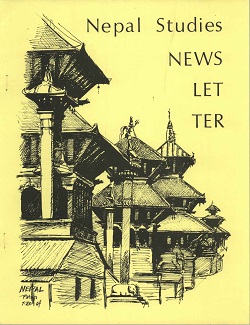Author Biography
Dannah Dennis is a Ph.D. candidate in anthropology at the University of Virginia. Her dissertation, entitled Nepali First: Citizenship and Privilege in Nepal, examines changing narratives of national identity in the midst of Nepal’s constitutional transition to secularism and federalism. She has published articles on the gendered and regional exclusions that shape Nepali citizenship law and on the political significance of Nepali claims to Buddha’s birthplace, along with a piece of ethnographic fiction exploring the effects of international migration on Nepali middle-class families.
Abstract
During the period leading up to the passage of the 2015 constitution in Nepal, the roads of Kathmandu were often interpreted by the city’s residents as symbols of the stalled constitutional process and of the faltering and corrupt nature of national politics in general. By detailing specific moments in which the inadequacy of roads and the inadequacy of the state were directly juxtaposed in everyday conversations, this article calls for sustained attention to the interrelationship between urban infrastructure and national- and local-level politics.
Acknowledgements
The fieldwork on which this article is based was conducted with funding from the Wenner-Gren Foundation and the University of Virginia. The author would like to thank Andrew Nelson and Heather Hindman for organizing this special issue, the anonymous reviewers for their constructive feedback, and Avash Bhandari for his support during the research and writing process.
Creative Commons License

This work is licensed under a Creative Commons Attribution-No Derivative Works 4.0 License.
Recommended Citation
Dennis, Dannah K.. 2017. On the Road to Nowhere: Stalled Politics and Urban Infrastructure in Kathmandu. HIMALAYA 37(1).
Available at:
https://digitalcommons.macalester.edu/himalaya/vol37/iss1/14
IMG_1971.JPG


